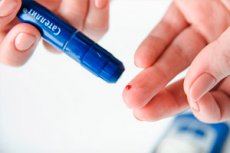New publications
Features of the course of viral infections in diabetics
Last reviewed: 29.06.2025

All iLive content is medically reviewed or fact checked to ensure as much factual accuracy as possible.
We have strict sourcing guidelines and only link to reputable media sites, academic research institutions and, whenever possible, medically peer reviewed studies. Note that the numbers in parentheses ([1], [2], etc.) are clickable links to these studies.
If you feel that any of our content is inaccurate, out-of-date, or otherwise questionable, please select it and press Ctrl + Enter.

High blood glucose levels inhibit the activity of immunocytes in the pulmonary system.
It is known that the presence of diabetes of any type aggravates the course of viral infections: patients are more often detected lesions of the respiratory system, and the same flu is carried much more severely. Why does this happen?
Medical experts representing the Weizmann Institute have set up several experiments on rodents with diagnosed diabetes mellitus of different types. The rodents were infected with various respiratory infectious diseases. Expectedly, the diabetic animals had a harder time tolerating the disease and some of them even died. A relatively weak response of their immunity to the invading infection was noted, and the lungs were damaged more severely and extensively. After analyzing gene activity in individual lung tissue cells, the scientists identified immune dendritic structures that engulf pathogens - for example, influenza virus or coronavirus, - then recycle them and release unwanted viral particles (debris). These particles are "sensed" by T-killers by receptors, which seem to familiarize themselves with the "uninvited guest". In other words, dendritic structures give antigens immunostimulatory properties.
Antigens are also detected on normal cells, although dendritic structures display them in a special way. In addition, without such structures, immunocytes do not show confidence that unknown particles may pose any danger. It turns out that dendritic cells are responsible for the strength of the immune response.
During the experiment, scientists found out that dendritic lung structures are negatively affected by increased blood glucose levels. First of all, it has an inhibitory effect on the genes in the dendritic cells, and most of the DNA sites become difficult to process. These sites encode a variety of genes, many of which control antigen presentation and activation of T-killers. The result is a weakened immune response to virus invasion.
Regarding coronavirus infection, diabetes mellitus does not increase the risk of infection. But diabetics have a higher risk of complications and acute deterioration of the condition on the background of COVID-19. The emergence of complications may be due to both pathogenic activity of the pathogen itself, and deterioration of metabolic processes and cardiovascular functions against the background of infectious disease.
It is likely that the problem can be corrected by prior administration of a blood glucose-lowering medication. However, not all patients glucose levels respond well to medication, so follow-up clinical trials are required in this area.
The full article is available at in the journal Nature
